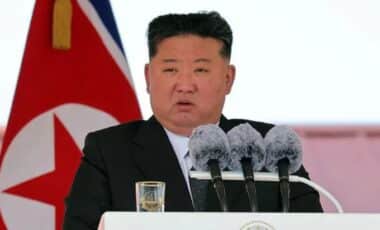Being there . . . . welcoming Lieutenant Colonel Gerhard L. Bolland and General Jan Smuts. And their unconventional warfare strategies and tactics to the shelves of your personal libraries . . . .
CASEMATE PUBLISHERS, YET AGAIN, OFFERS READERS BIOGRAPHICAL CHRONICLES OF APOTHEOSIZED MILITARY GENIUSES
Reviewed and Highly Recommended by Don DeNevi
“AMONG THE FIRSTS – – Lieutenant Colonel Gerhard L. Bolland’s Unconventional War – – D-Day 82nd Airborne Paratrooper, DSS Special Forces Commander, Operation RYPE”, by Matthew T. Bolland. Casemate Publishers, 202: 366 pages, $34.95.
“GENERAL JAN SMUTS AND HIS FIRST WORLD WAR IN AFRICA,1914-1917 Incorporating His German Southwest and East Africa Campaigns”, by David Brock Katz. Casemate Publishers, 2022: 382 pages; $37.95.
“It may well be that the greatest soldiers have possessed
superior intellects, may have been thinkers; but this was
not their dominant characteristic . . . they owed their
successes to indomitable wills and tremendous energy in
execution and achieved their initial hold upon the hearts
of their troops by acts of demonstrated valor . . . the
leaders are not our responsibility, but God’s.”
General George S. Patton, Jr., Oct 1927,
The Patton Papers, Vol. 1, 1972
Among The Firsts
Apropos, enter Lieutenant Colonel Gerhard L. Bolland, a wholly self-realizing man whose essential personality traits learned early and thus lifelong – good things expected of those born in good families of high love of family and for country, ancestral traditions, and creative thought. First lessons taught of duty and principle, faith and doubt, courage and resoluteness, empathetic understanding, and compassionate helpfulness, whether for an animal, individual, family, or entire errant nation are never forgotten.

“AMONG THE FIRSTS” is a simultaneous autobiography-biography of such family and strategic war planning immenseness that Gerhard L. Bolland’s legacy, known only to a handful of friends and military officers, is now available universally. Thanks mostly to his son, Matthew T. Bolland, the book’s 366 pages are so vigorously definitive and weighty in his dad’s Norwegian heritage and his World War II near-genius mental activities, aims and intents, and actions, that no one ever again needs to essay applause or acclamation. Lt. Gen. Boland’s immortal bequests are alive for all to ponder, among them the solid judgment, character, and bravery to lead men and women in battle.
What is also of paramount importance in the book, especially to the military-minded, whether buff, administrator, senior strategist, or joint decision-maker, are the theoretical contributions of the Lieutenant Colonel to the concept of “unconventional warfare tactics” needed to affect the outcome of any war. His were integral in the development and employment of two methods of fighting.
The first was the creation and establishment of “paratroop” units. The second was the formation of a covert and sabotage operations branch called the Office of Strategic Services (OSS). Bolland was enmeshed in both “firsts,” participating as the Field Commander of several 82nd Airborne and 507th Parachute Infantry Regiments. Simply put, Bolland’s first-hand account of unconventional war reveals the struggles, successes, failures, and ultimate victories of these newly developed methods of fighting. “AMONG THE FIRSTS” is unquestionably one of the most important contributions to the ever-expanding library of WWII literature published thus far this century.
General Jan Smuts And His First World War In Africa
Who was Jan Christian Smuts, and why would anyone care to know?

Well, allow this reviewer to introduce him, and answer why in a quote from a speech he made on 30 May 1902, 120 years ago, at the conclusion of the Orange Free State and Transvaal leadership before the surrender to the British ending the Boer War in South Africa.
In short, he was a South African Boer Statesman and soldier; a senior Boer leader in the Boer War (1899-1902); largely responsible for effecting the Union of South Africa during World War 1. He organized the South African forces and commanded British forces in East Africa; was made a fields marshal in 1941. This splendid biography by David Brock Katz, a lecturer at the South African National Defense Force Army and Defense Colleges, is yet another meticulously researched, definitive study of a storied life. It provides a long-overdue reassessment of Smut’s generalship and his role in furthering the strategic aims of South Africa and the British Empire in Africa during World War 1. The reader can determine if the following passage captures not only how remarkable a warrior Jan Christian Smuts was for his people, but also the enormity of his political contribution to the fledgling nation.
“From a purely military standpoint, our cause is not lost. But it is as a nation, and not as an army, that we are met here, and it is therefore for the nation principally that we must consult . . . No! We do not only represent our burghers placed on commando; the troops over which we are placed in command; we also represent the thousands who have passed away, after making the last sacrifice for their country; the prisoners scattered all the world over; the women and children dying by the thousands in the prison camps of the enemy; we represent the blood and the tears of the whole African nation. From the prisons, the camps, the graves, the veldt, and from the womb of the future, that nation cries out to us to make a wise decision now, to take no step which might lead to the downfall or even to the extermination of our race, and thus make all their sacrifices of no avail.”
“Brethren, we have vowed to stand fast to the bitter end; but let us be men, and acknowledge that the end has now come and that it is more bitter than ever we thought it could be. For death itself would be sweet compared with the step which we must now take. But let us bow before the will of God.”








